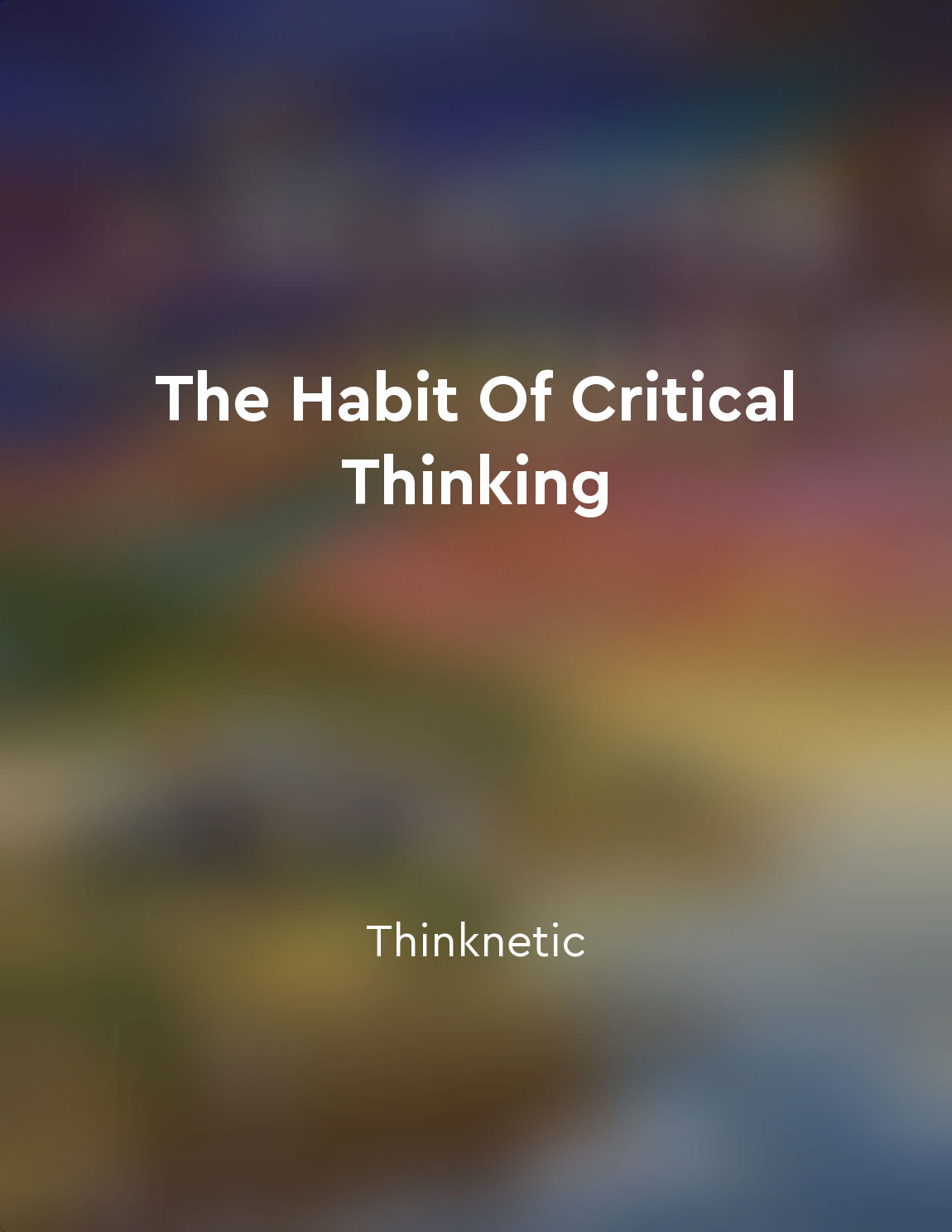Audio available in app
Gather reliable data from "summary" of The Habit Of Critical Thinking by Thinknetic
When it comes to critical thinking, one of the fundamental principles is the gathering of reliable data. This means collecting information that is accurate, trustworthy, and relevant to the issue at hand. Without reliable data, any conclusions drawn or decisions made are likely to be flawed or biased. To gather reliable data, it is important to consider the sources from which the information is coming. Are they reputable and trustworthy? Are they experts in the field or have they conducted thorough research on the topic? It is also crucial to look for data that is current and up-to-date, as outdated information may no longer be relevant or accurate. Furthermore, it is essential to be aware of any potential biases or conflicts of interest in the data being collected. Bias can skew the information and lead to misleading conclusions. By being mindful of bias and seeking out diverse sources of information, one can ensure a more balanced and accurate understanding of the issue. In addition, it is important to cross-reference data from multiple sources to verify its accuracy and consistency. If different sources provide conflicting information, it is necessary to investigate further and determine which sources are more reliable. By triangulating data from various sources, one can build a more comprehensive and trustworthy understanding of the topic.- Gathering reliable data is a critical step in the process of critical thinking. By seeking out accurate, trustworthy, and relevant information from reputable sources, one can make more informed decisions and draw more reliable conclusions. It is essential to be diligent in collecting and evaluating data to ensure that one's thinking is based on solid evidence and reasoning.


